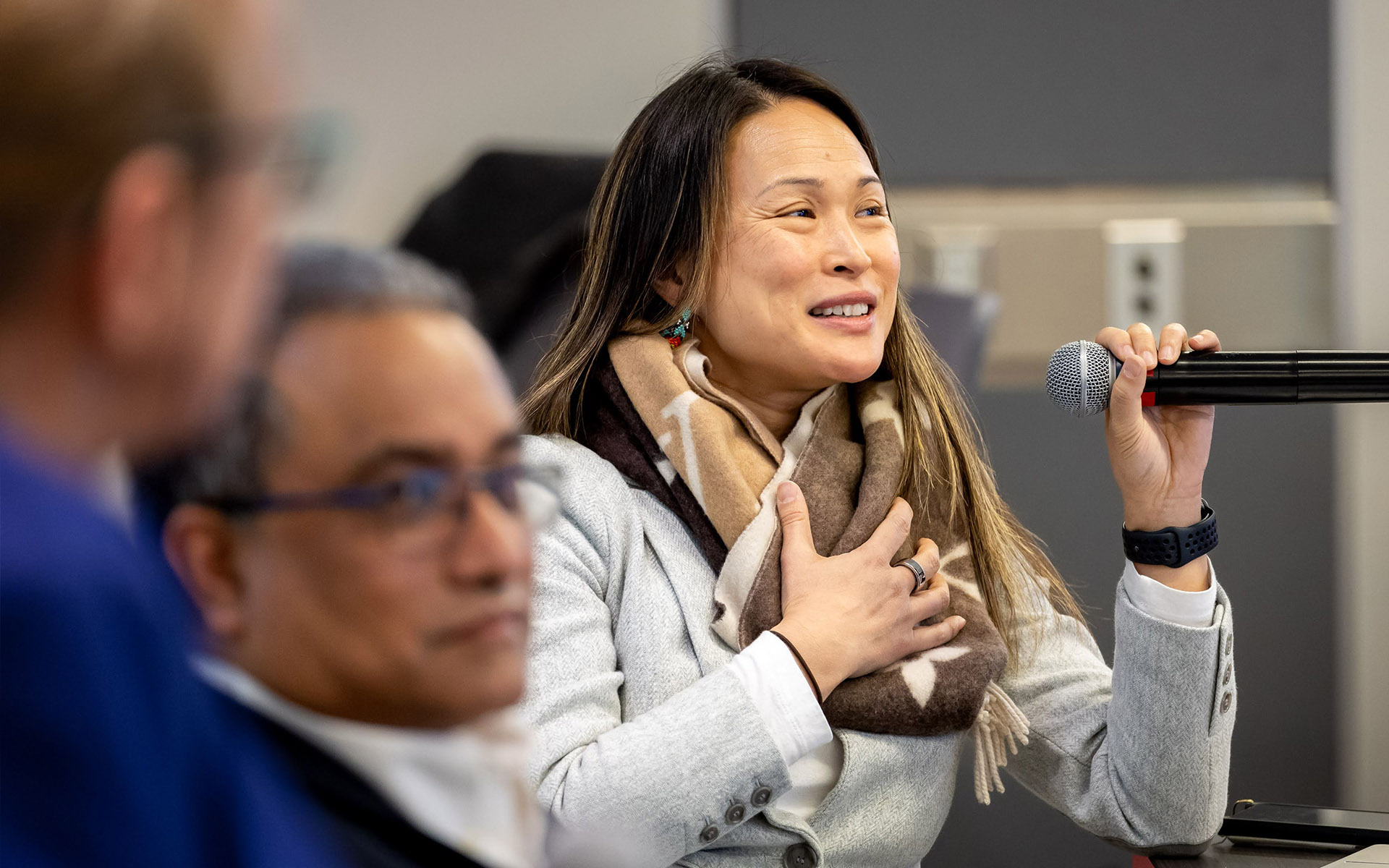The world is obsessed with a particular kind of entrepreneur. Think Steve Jobs, casually walking onto the stage in 2007 to launch the first-ever iPhone: a middle-aged man with pale skin in casual clothing in the tech industry. With the rise of Silicon Valley came a slew of celebrity CEOs who fit a similar profile. And as they left their mark on the public imagination, they also became popular subjects of management research.
Damon J. Phillips is a professor at the University of Pennsylvania’s Wharton School of Management. In a paper, he found that 63 per cent of research about entrepreneurs focused on high-tech and knowledge-intensive industries.
“We are experts on elite entrepreneurs,” said Phillips at the 2025 McGill Conference on Everyday Entrepreneurship.
To an extent, that’s understandable. These are high-impact companies that, in some cases, changed entire industries. But these companies only account for 17 per cent of all entrepreneurs, he said. The rest are small-to-medium-sized enterprises (SMEs) led by a diversity of people.
For Phillips, this is a significant blind spot. When we focus on one particular kind of entrepreneur, we’re only telling one kind of story, highlighting one kind of experience.
“We risk overgeneralizing and deifying the experiences of a narrow subset of entrepreneurs,” he said.
Indeed, while the world is preoccupied with founders like Jobs, look no further than your local high street to see other entrepreneurial endeavours in action. It’s the local barista who works 12-hour days to keep the lights on, the newcomers who run the corner store, or the local barber who gets your hair just right. And beyond these brick-and-mortar examples, there are freelance writers, consultants, musicians, and others who take on financial risk to trade on their skills.
When we focus too much on the “elites” who share similar demographic characteristics, we ignore the conditions and experiences of entrepreneurs from different backgrounds. And this affects how we train the next generation of entrepreneurs and support the current one.
One gig at a time
Marika Galea is a jazz bassist and Assistant Professor of Music at Brandon University. But for most of her career, she wasn’t just a musician – she was an entrepreneur. She described herself as a “hired gun,” someone who other artists invite into the studio to play on their albums. This meant she hopped frequently from one project to the next, managing her own gigs, contracts, and licensing deals. In addition to producing great art, she had to manage herself as a business.
This is the norm for working musicians like her.
“So much of the industry is intrinsically freelance or gig-based,” she said.
Hers is a particular experience of entrepreneurship, which comes with its own opportunities and challenges. For Galea, it allowed her to express herself freely through her art, collaborate with other great musicians, and carve out her space in a male-dominated area.
But in an industry that depends heavily on people sharing a physical space, her work evaporated during the COVID-19 pandemic.
“I had to ask myself, ‘What am I going to do now?’” she said. “I think creative people disintegrate if they can’t make things.”
As an entrepreneur, Galea experienced the pandemic in a way that was unique to her and her industry.
Professor Damon J. Phillips calls on management scholars to investigate the diverse conditions that affect entrepreneurs from all backgrounds. Otherwise, we’re missing a big part of the story.
“As a community of scholars, I don’t think we should be comfortable with thinking we know a lot about entrepreneurship,” he said. “A lot of the evidence is based on a narrow sliver of society.”
Checking our blind spots
SMEs are a significant part of the global economy. They represent the majority of the world’s businesses, are responsible for up to 70 per cent of the world’s jobs, and account for up to 55 per cent of the GDP in developed countries. They are also important drivers of employment, economic development, and innovation.
And yet, so much entrepreneurial research focuses on one side of the coin, explained Roman Galperin, Associate Professor of Organizational Behaviour at McGill University. Entrepreneurship scholars focus heavily on founders of big companies, their products, and their sales. But they rarely investigate the connections between everyday entrepreneurship and job markets.
“Once you focus on that, it becomes clear that large tech firms don’t employ very many people,” said Galperin. “Everyday entrepreneurship affects many more people.”
Indeed, large tech firms often do their best to avoid creating jobs, explained Rob Nason, Associate Professor, Strategy and Organization. The ride-sharing company Uber has gone out of its way to avoid calling its drivers employees. And mega-firms like Meta are attempting to replace human workers with AI.
“We know that entrepreneurs tend to concentrate on growing valuation, while policy makers talk about entrepreneurship in terms of growing jobs,” said Nason. “If we care about jobs, we need to take a broader approach that embraces many diverse forms of entrepreneurship.”
Researching the intersection between jobs and entrepreneurship opens the door to a whole new set of questions and possibilities for management research. Not only can it shine new light on the experiences, tactics, and behaviours of company founders, but it can also bring their employees into the picture.
“It’s critical we look past founders, and even past the top management team, to understand the experience of work in startups,” said Lisa Cohen, Associate Professor of Organizational Behaviour at McGill University.
What is working for these entrepreneurs like? What do people do afterwards? How are these jobs designed and developed over time? Answering questions like these will paint a more fulsome picture of entrepreneurship and employment.
There’s much work to be done, but there’s a growing number of researchers who are taking on questions of everyday entrepreneurship, explained Professor Damon J. Phillips. But he’s optimistic.
“The momentum is going in that direction,” he said. “We are doing something closer to understanding all entrepreneurs.”
The McGill Conference on Everyday Entrepreneurship (MCEE) is an annual research gathering with an unconventional take on entrepreneurship that brings together leading scholars in entrepreneurship, strategy, organizational behavior, and policy, providing a collaborative platform that bridges academic research, policy and business insights. More info.
Written by Eric Dicaire, Managing Editor, McGill Delve, delve@mcgill.ca
Featured experts

Roman Galperin

Robert Nason

Lisa Cohen











